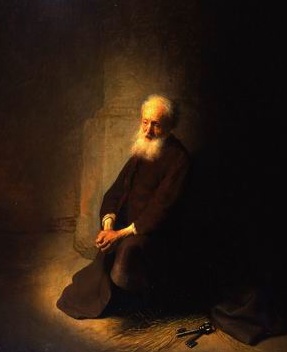
Michael Kruse, who blogs at the Kruse Kronicle, is one of our most faithful conversation partners on the Jesus Creed blog. He has over and over instructed us about economics and so we asked him to do a series for us on basic economics. I’m looking forward to this series.
This is the first in a series of posts reflecting on how economics touches on aspects of our Christian Life. Let me make clear at the start that I’m not an economist. Economic and community development have been my passion for years and that has led me into considerable reflection on economics. My hope is each Wednesday in the coming weeks we can have some conversation about what economics is and how it might relate to our mission in the Kingdom of God. Today we begin with some reflection on what economics is.
Each morning we are confronted with the same question: What am I going to do today? Whether you’re a meticulous planner or you fly by the seat of your pants, we all face the same reality: Every decision we make to do something today is a decision not to do everything else. We are constrained by the limited number of hours in any given day. But time isn’t our only constraint.
Even if I choose to, I can’t repair an engine block or fly a jet. My abilities are limited. Furthermore, I don’t have the tools to fix an engine or access to a jet. My financial and material resources are limited. Constraining all these constraints is my knowledge of tomorrow. What I do today is going to impact what decisions I can make tomorrow.
Then there are the things we need for healthy satisfying lives. They do not materialize out of thin air. God has created a world of great abundance, but we are participants in our own provision. As Henri Nouwen observed, we take of the bread and wine at communion, not the wheat and grape. Human beings transform matter, energy, and data from less useful states into more useful states. We must balance our use of resources with the production of resources if we want a sustainable life. We must engage in productive work that either directly or indirectly (through exchange) provides for us. In short, we have a scarce (i.e., limited) amount of time, capabilities, and resources we must prioritize and use each day.
Our decisions do not occur in a vacuum. We live in families and communities. Each of us has our strengths and weaknesses. Living in community allows us to take advantage each other’s strengths and minimize weaknesses. Managing our scarce resources in coordination and cooperation with others is a benefit of all. When we add communities together we have regions, nations, and ultimately a global community, in which the challenges of coordination and cooperation become incomprehensibly complex. But the question remains the same: Given scarce (i.e., limited) resources, what should each of us do today and how will we coordinate billions of projects? Economics is the study of how we, individually and collectively, go about answering that question.
So look at almost any textbook on economics and you will find a definition of economics similar to this one in Greg Mankiw?s industry leading textbook, Principles of Economics:
“Economics is the study of how society manages its scarce resources.” (4)
As Christians reflecting on economic issues, two observations need to be made at this point. First, it has become common among theologians to speak dismissively of economics because it begins with the idea of scarcity. God created the world with abundance, we are reminded, so economics has the wrong starting point. The problem is that economists are not studying a world of sinless human beings. We live in a world of fallen humanity and it will remain so until the consummation of the new creation. Legitimate and illegitimate needs exist side by side. Not all of them can be met. Therefore, the study of how people deal with scarcity is the legitimate starting point.
The second point is the standard by which we measure economic systems. The Kingdom of God — a world filled with perfect shalom — is our standard. Yet we know that this standard will not be met prior to the consummation of the Kingdom. Any economic system that allows people to choose the good also allows them to choose the bad. Finding the presence of people behaving sinfully within any economic system is insufficient as an indictment of that system. An economic system must be weighed against other systems that will also have sinful humanity in the mix.
Let’s end there. What do you think? Is scarcity the appropriate place for beginning economics? Is the idea of finding the best alternative among many flawed alternatives correct? What might it mean for our reflection on economic issues?

